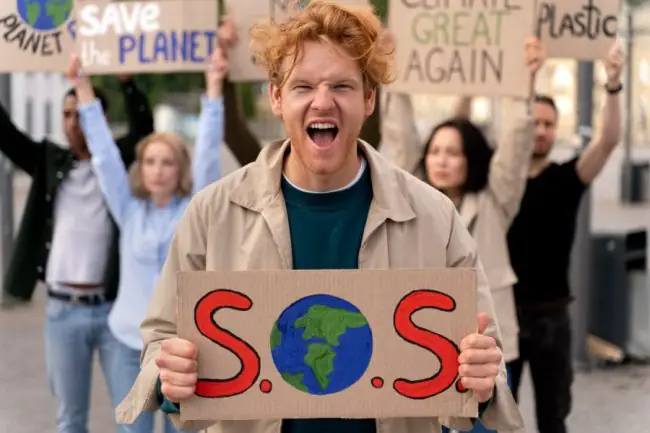The climate crisis isn’t just an environmental issue it’s a health crisis. The effects of climate change reach deep into the public health area with temperatures rising, pollution worsening, and extreme weather events increasing.
There is a connection between the climate crisis and health risks, how climate impacts populations, and what actions can help reduce these health effects.
Is Climate Crisis a Health Crisis
The climate crisis impacts health in many ways, from heat-related illnesses to respiratory issues and mental health challenges.
Spain, like many regions, is already experiencing these effects, with warmer temperatures and frequent climate events affecting daily life and public health.
Health Risks Linked to Rising Temperatures
Rising temperatures, a Distinctive mark of the climate crisis, significantly affect health. Heat waves are increasing, particularly in Spain, leading to increased dehydration, heat exhaustion, and heatstroke risks.
Vulnerable groups, such as the elderly and young children, are especially prone to heat-related health issues. Adaptive health measures are necessary to help communities cope with these extreme temperatures.
Pollution and the Climate Crisis: Direct Health Effects
Air pollution, exacerbated by the climate crisis, is a major health threat. In urban centers across Spain, like Madrid and Barcelona, air quality often falls below safe levels.
Pollutants such as carbon dioxide and particulate matter lead to respiratory and heart problems, impacting the most vulnerable, including children and those with pre-existing health conditions. Combating pollution is essential in addressing this crisis’s effects on health.
Increase of Vector-Borne Diseases
Another consequence of the climate crisis is the spread of vector-borne diseases. With changing temperatures and increased rainfall, conditions are becoming favorable for diseases like dengue and malaria, which are now seen in regions once considered immune.
These emerging health threats demonstrate how this crisis is reshaping global health landscapes, and Spain is no exception.
Vulnerable Populations in the Climate Crisis
The health impacts of the climate crisis are not evenly distributed. Vulnerable populations including the elderly, children, and marginalized communities often experience the brunt of these impacts.
For instance, children’s developing respiratory systems are more prone to pollution, while low-income communities face higher risks due to limited resources and healthcare access.
Low-Income and Marginalized Communities
Low-income communities, often located in areas more exposed to pollution or flooding, face disproportionate health risks from the climate crisis.
Without resources for air conditioning, healthcare, or emergency responses, these populations are more vulnerable to climate events.
Gender Variances in Health During the Climate Crisis
Gender also plays a role in how people experience this crisis.
Women in lower-income areas are often more affected due to caregiving roles and limited access to resources during extreme weather events.
These gender differences highlight the need for a complete technique for climate adaptation.
Escalating Weather Events and Health Consequences
The climate crisis has fueled an increase in extreme weather events, each carrying serious health issues.
The Impact of Heatwaves
Heatwaves, which are intensifying due to this crisis, impact both physical and mental health.
Long periods of high temperatures can exacerbate mental health conditions, cause sleep distractions, and lead to increased levels of stress and anxiety, commonly referred to as “climate anxiety.”
In Spain, these effects are increasingly noticeable as heatwaves become part of regular summer seasons.
Health Risks of Natural Disasters
Natural disasters, including floods, hurricanes, and wildfires, have become more common as a result of the climate crisis.
These events can cause direct physical injuries and expose people to smoke, which worsens respiratory health.
Long-term trauma and stress from surviving these events add another layer of health impact tied to this crisis.
Food and Water Security Under Threat
The climate crisis also threatens essential resources like food and water, posing risks to public health.
Dryness disrupts food supplies, contributing to malnutrition and food insecurity, while water shortages affect sanitation and hygiene.
Spain, with its rich agricultural sector, is vulnerable to these disruptions, which impact both health and economy.
Mental Health and the Climate Crisis
While physical health impacts are more visible, this crisis also has significant mental health implications.
Climate Anxiety and Psychological Stress
The rise in “climate anxiety” reflects the growing concern about the future of our planet.
This anxiety is particularly strong among younger generations who face an uncertain future as a result of the climate crisis.
Addressing the mental health aspects of climate change is important to building community resilience.
Mental Health Support within Climate Crisis
Adding mental health resources to climate adaptation strategies is essential.
Resources to help individuals cope with anxiety and stress from this crisis can improve community resilience and well-being.
Building Resilience for Healthier Communities
While the climate crisis poses numerous health risks, communities can take steps to build resilience and protect public well-being.
Community-Driven Adaptation
Communities are important in applying local solutions, such as urban greening projects that reduce heat and improve air quality.
Community-driven efforts empower individuals to protect their health, adapt to climate changes, and contribute to a sustainable environment.
Role of Global Health Organizations
Health organizations, including the World Health Organization (WHO), are addressing the health risks of the climate crisis.
Their guidance and resources support countries, including Spain, in developing effective climate adaptation strategies that protect public health.
The Economic Burden of the Climate Crisis
Ignoring the health impacts of this crisis comes with a high economic cost. The stress on healthcare systems due to climate-related illnesses highlights the financial urgency of addressing these health issues.
Investing in sustainable practices and preventive health measures can reduce future expenses linked to this crisis.
Innovative Solutions for Climate and Health
Technology and innovation are central to addressing the health impacts of the climate crisis.
Advanced air quality monitors and early warning systems for extreme weather help communities adapt to changing conditions, reducing health risks and building resilience.
Collaborative Policies for Climate and Health
Policies that address both this crisis and health issues are essential for comprehensive action.
Initiatives promoting renewable energy and sustainable transportation can reduce pollution and improve public health.
Working with health organizations ensures that policies meet both environmental and health needs.
Policy and Community Engagement
Policymakers play a key role in addressing the climate crisis and its health impacts. By applying laws supporting clean energy, reducing emissions, and strengthening public health initiatives, they drive climate action.
Participating in community support efforts empowers people to make sustainable choices and support policies for healthier, climate-resilient futures.
Conclusion
The link between the climate crisis and health is clear. From physical illnesses to mental health challenges, the crisis presents pressing issues for individuals, communities, and nations.
Addressing these impacts requires a holistic approach that prioritizes vulnerable populations, promotes sustainable policies, and builds community resilience.
As we confront the crisis, understanding its health implications will be key to creating a safer, healthier world for all.
FAQs
Is the climate crisis also a health crisis?
Yes, climate change has direct and indirect impacts on public health, including respiratory issues, vector-borne diseases, and mental health challenges.
What are the escalating effects of climate change?
Rising temperatures, increased pollution, extreme weather events, and food and water scarcity are among the escalating impacts of climate change on health.
Is there a climate crisis?
Yes, the scientific community agrees that we are facing a climate crisis, with far-reaching consequences for the environment, economy, and public health.
What is being done to combat climate change?
Global organizations, governments, and local communities are implementing policies and initiatives to reduce emissions, promote sustainable practices, and build resilience.







